It can be a heartbreaking and devastating thing when children get caught between a narcissistic parent and the parent who always tries to protect them from their toxic and manipulative games.
If there is one thing which will often scupper an attempt to escape our clutches, it is the existence of children.
On the one hand, the existence of children created by you and our kind often results in you continuing to endure the relationship for the sake of the children rather than separate. On the other hand, even if you do decide that it is better to separate than stay with our kind, you are rarely able to truly escape because of the shared connection that exists because of the children.
Even though you wish to escape the roller-coaster existence of being with our kind, as an empathic person you behave fairly and recognize that the children should see their other parent, and thus you either make provision or allow for contact to continue between our kind and the children which in turn means that there must inevitably remain contact between you and us.
You may however take the draconian step of deciding that it is in the best interests of the children to have no contact with the narcissistic (although usually you only realize the other parent is abusive rather than narcissistic at this juncture) parent and cut all contact off. This then results in our kind turning to formal means through the courts to establish contact with the child or children again.
Related: How Toxic Family Dynamics Can Cause C-PTSD In Emotionally Intense Children
Your concerns in respect to the involvement of our kind in the raising of children cover numerous factors.
1. You are concerned that our behavior will affect the children so that they in turn become narcissists;
2. You are worried that our behavior leads to the children witnessing abusive behavior towards you which will upset the children;
3. You are concerned that our behavior will lead to the children not receiving a stable and nurturing upbringing;
4. You are worried that the children will be used as pawns between you and us and adversely influence so they are turned against you;
5. You are concerned by our failing to provide emotional and financial support which will in turn impact on the children; and
6. You are worried that our behaviors will effectively spoil what should be happy moments in childhood.
These, along with others, are legitimate concerns.
It becomes especially difficult for you when you find that you face a battle between doing what is right for a child even though this may clash with what they want.
They want to spend time with us but you see such time as toxic and having an influence on the child (who as a child cannot see or comprehend what is happening) which is at best unhelpful and at worst downright damaging.
How to save your children from a narcissistic parent? How do you deal with a situation where you need to do what is right and best for a child, even though they will not see this at the time?
First of all, what must you understand about our (Narcissist parent) attitude towards children and parenting?
How A Narcissist Sees Their Children
1. Children are regarded as appliances by us.
There is no distinction made for the fact that they are children nor that we are their parents. We see children as appliances and devices which are an extension of ourselves and therefore there to do our bidding. You should never be under any illusion that a narcissistic parent loves the child. Do not be fooled into thinking that any benign act exhibited by our kind is a manifestation of love towards a child.
2. Children are source of fuel.
This pervading mindset means that children will be used in order to gather fuel. This will be done directly by obtaining fuel from them. Initially, this will manifest as wanting to spoil them when we have time with them so that their positive responses to this will provide us with positive fuel. We will upset, anger, and frustrate children, in addition, to draw negative fuel as and when it is deemed appropriate.
This is not done because the positive fuel has become stale (as is the case when devaluation occurs in the context of an intimate partner primary source) but is an adjunct of wanting to achieve some other aim.
The two most popular aims are control and triangulation. We will provoke a negative fuel response from children in order to exert control over them, for instance, taking a toy away or forbidding them to do something that they enjoy such as watching a certain television program or being allowed some sweets. This reinforces our control.
A child is no different from any other appliance and must be subjected to our control. This control is not exerted for the benefit of the child, for instance, stopping the child from eating sweets every day because it is unhealthy, but is only done so we can establish control. In terms of triangulation, the negative emotional response will be achieved for the purposes of triangulating you.
For instance, we may suggest to the child that mummy does not love the child so it becomes upset. We only care about the reaction, not the well-being of the child. We may say that the child cannot do something on your instruction, in order to both upset the child and thus gain negative fuel and at the same time smear you through this triangulation.
Thus, when negative fuel is sought from a child it arises in conjunction with the desire to control and/or to triangulate. Understanding this attitude will help you save children from narcissists.
Related: 6 Lies Narcissistic Parents Make Their Children Believe
3. Traits and achievements.
The traits and achievements of the child are up for grabs in the same way that we steal and acquire traits from adults in order to furnish our construct and make ourselves look even more appealing. Our sense of entitlement is such that the child has only won the race, come top of the class, swum that distance, secured a place on a vacation scheme as a consequence of our brilliance. We will remind you, the child, and third parties that this is the case. Repeatedly.
4. Smear and brief.
We will smear and brief against you at every available opportunity. Irrespective of the reasons why the relationship between you and us ended, we will not rise above the desire for smearing for the sake of the children. If there is an opportunity to take a pot shot at you, it will be taken.
The needs of the children do not ever come before our needs. Thus if they are upset by what we say about you, we receive fuel and do not care how it affects them. If they begin to dislike you because we suggest you are too strict, we will not counter that but rather we will cultivate this position to our advantage.
5. Criticism.
Just like you, children can cause criticism to us. Rather than soak it up as a mature, well-adjusted parent would, we will lash out when there is a perceived or actual criticism of us delivered by the words and/or actions of the child. This will as ever result in the ignition of fury and the manifestation of heated fury or cold fury.
We will sulk with a child, turn away from them if they want to support, and/or shout at them. The fact they are a child is meaningless to us. The fact we as a parent owe obligations to them to behave in a mature and responsible fashion to them does not matter because our needs come first.
6. No sense of responsibility.
We have no sense of responsibility or obligation to children. A lesser narcissist will see no need to maintain maintenance payments and will be content not to see work. A greater may well make such payments, not because he cares about the children but it is done to show to everybody else how generous he is and also to make you look bad if your financial contributions are not as substantial.
The payment or otherwise of financial support will be used as a carrot and stick against you throughout the duration of childhood. We will only become involved in the lives of the children if we regard there as being some kind of benefit to us. Their emotional needs, education, safety, etc. are irrelevant to us.
We will attend a school performance not to show support to the child so they feel happy, but to show to other parents that we apparently love and support the child, so we gain fuel and infuriate you. We regard obligations as beneath us, we have no sense of accountability, our sense of entitlement means we can do as we please, our lack of guilt or conscience means there is no mechanism causing us to adopt an alternative stance.
Related: How Adult Children of Narcissists Can Begin to Heal
7. Children are pawns.
Understand that children are pawns which will ALWAYS be used to our advantage. Whether it is to bind you to us during the golden period, to make us look good to others, to draw fuel, to exert control, to triangulate, to perpetuate abuse, and so forth, our interactions with our children are governed by our needs.
In the same way that our interactions with you as an intimate partner or our involvement with an inner circle friend, or our dealing with a stranger are all governed by our needs first, the same is applicable to children.
8. The court system.
Attempting to curtail our involvement with the children is seen as a criticism to us, irrespective of how morally and factually correct your action may be. That is irrelevant to us. We will use the court system for our purposes. We do not wish to spend time with our children for their sake, but instead, it is for our sake.
We may find it boring having them but if we know the fact they stay with us one night a week upsets and anger you, we will do it in order to draw this fuel from you, and therefore we will use the court system to fight. It is not a fight for the benefit of the children. It is a fight for the maintenance of our needs – fuel, control, triangulation, etc.
With this mindset of ours now apparent in our interactions with you and the children, how do you deal with us?
Strategies To Save Your Children From A Narcissistic Parent:
1. Minimize the interaction you have with us.
Establish a system for messages to be sent by e-mail or text. If this is deviated from by a telephone call, do not take the call but allow voice mail to pick up the call, and then you can establish how best to respond thereafter and you will not provide fuel by being tricked into answering a call. If possible, prevent any face-to-face contact between you and us concerning the children.
We draw the most fuel from seeing your emotional reactions face to face. Remove this (where practical) and you are denying us fuel. For instance, utilize the assistance of other family members or friends for the handover of the children until such an age as when they can use transport or walk between venues safely.
2. Keep communication to the point.
Ensure all communications are to the point, business-like and contain no emotion.
This again denies us fuel. Establish a five-minute rule so that you never immediately respond to our communications (when you are more likely to do so in an emotional fashion as we try to provoke you). If five minutes is too short, extend the time.
Related: 30 Ways In Which Narcissistic Parenting Affects A Child
3. Denying fuel.
By denying us the fuel we will (initially) try to provoke you in different ways concerning arrangements and interaction with the children. Whether that storm and because we must obtain fuel we will have to seek it elsewhere. You are not a viable source so we will eventually look to obtain fuel from you less and less.
You will also eventually notice that this manifests by us losing interest in the children. Remember, we are not interested in the children per se but how they as appliances can serve us.
4. Resist the ongoing battle of influence.
You will face an ongoing battle between your influence and our influence. This is deliberate as it is used to provoke you into confronting us about what we say about you, what we say to the children, and what we do with them.
We want you to engage. You must resist the need to do so. Remember, you will not make us change. We will not listen to you. We want to control you and draw fuel from you. We use the children to achieve this. Accordingly, if the children comment that we are making disparaging comments about you: –
5. Do not confront us about the issue, it is futile;
6. Do not seek to influence the view of the child.
Do not seek to influence the view of the child by saying “Dad is a bad person” this will trouble the child and the response will be conveyed to us which will secure Thought Fuel for us and also provide us with further ammunition to use against you for your comment.
Instead, move on to discussing something else and the child is likely to forget about the comment. If the child persists in wanting to discuss the matter, then explain that Dad does things differently to you and then move on.
Provide reassurance and listen to the child but do not, however tempting it may be, do or say anything disparaging as this plays into our hands. Your role is to maintain a positive influence on your children as often as you are able. By doing this (and starving us of fuel so the interaction will lessen) your positive influence will progressively outweigh our negative influence.
The more you expose your children to a positive influence and avoid walking into our traps and playing into our hands, you will tip the balance so that they will, through the effluxion of time and exposure to this positive influence flourish under it and make their own minds up.
Related: 6 Damaging Lies We Learn From Narcissistic Parents
7. Allow them to make up their own minds.
In a similar fashion to how you must deal with a smear campaign, do not tell the children what to think, but allow them to make up their own minds. This will be difficult at first and you will no doubt find yourself on the receiving end of hurtful and challenging behavior.
Keep in mind that this is our influence (not what the child really thinks) and that as you weather the storm, the effects of your positive influence will eventually manifest. As the children become older you can present them with independent evidence of behavior (not just hearsay and say so) so they can evaluate this for themselves and make their own minds up.
Like third parties, children do not want to be involved in a conflict between two people and they do not want to be told what to do. Cater to this and you will minimize disruption and increase your positive influence.
8. Positive behavior and influence.
Your approach is one of ensuring the “light side” overcomes the “dark side”. This can only be achieved by repeated reinforcement of positive behavior and influence. If you engage in behaviors similar to ours, you enter onto our home turf and you will not only encourage us to keep going with our behaviors but you will find there is a negative outcome for both you and the children.
9. Involve the relevant authorities.
If our behavior is serious in terms of impact on the children – for instance, violence or neglect – involve the relevant authorities. You will not be able to cause us to recognize we have done anything wrong because we either do not recognize that we have or we will not admit it for the purposes of maintaining control.
10. Evidence.
If you regard it as appropriate, save messages and e-mails which exhibit our behavior and allow the child access to them when an adult. This is again the presentation of independent evidence when they are in a position to make their own minds up. You must not engage in a popularity contest or sling mud; you will lose as this is playing into our hands.
Related: Six Kinds of Emotional Abuse by Narcissistic Parents
11. Positive approach towards your children.
If you find yourself having to engage with us through the court system, ensure those representing you are familiar with our kind. Rely on independent evidence as much as possible rather than “he said, she said”.
Recognize that we are experts at duping people and our lawyers, your lawyers, psychologists, court officials, and judges can just as easily be duped. If a hearing does not go your way, resist the urge to lash out at us – it is of course just fuel – and instead continue to adopt a positive approach towards your children.
That must always be your focus. We want you to engage with us and we will use children and the court system to provoke you to do this. Fail to engage and you take away much of our power.
It is hard. A narcissistic parent is a fact.
We will not go away so long as we are getting what we want or believe we can do so. Prevent us from getting what we want, demonstrate to us that we are unlikely to get what we want and we will turn our attention elsewhere.
This will then allow your positive influence to have an even greater bearing on the children and undo any harmful effects from our toxic influence. You will face challenges but by trying to address our behavior, cater to it and pander to it, you will not succeed in protecting your children. I have seen this first hand.
Written by HG Tudor Originally appeared on Narcsite Republished with permission
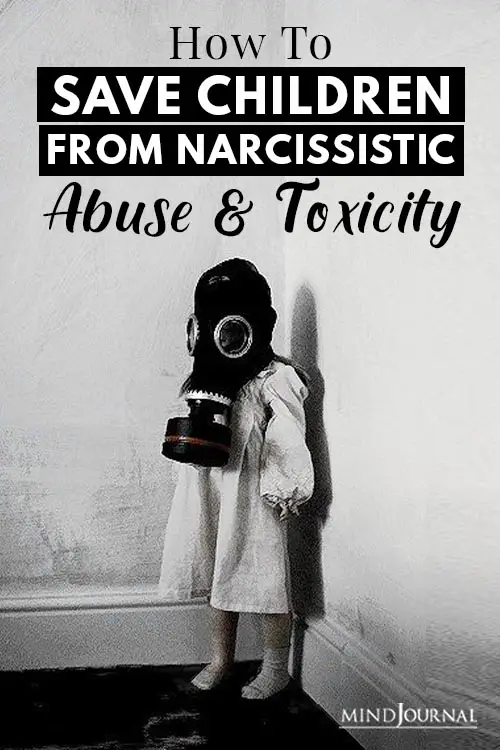
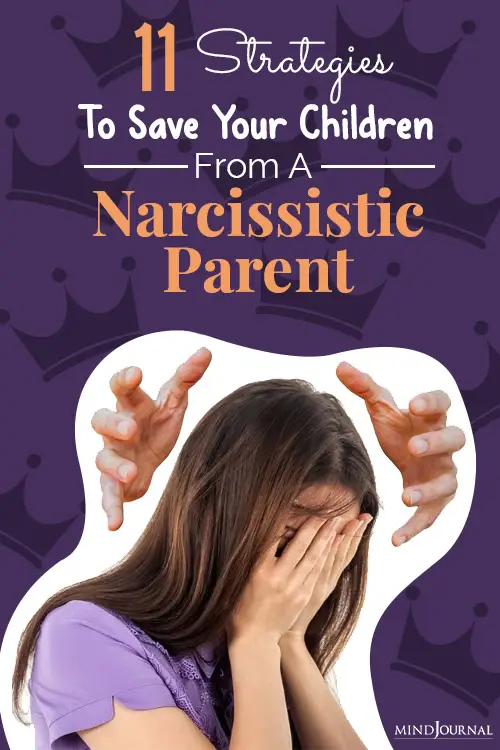
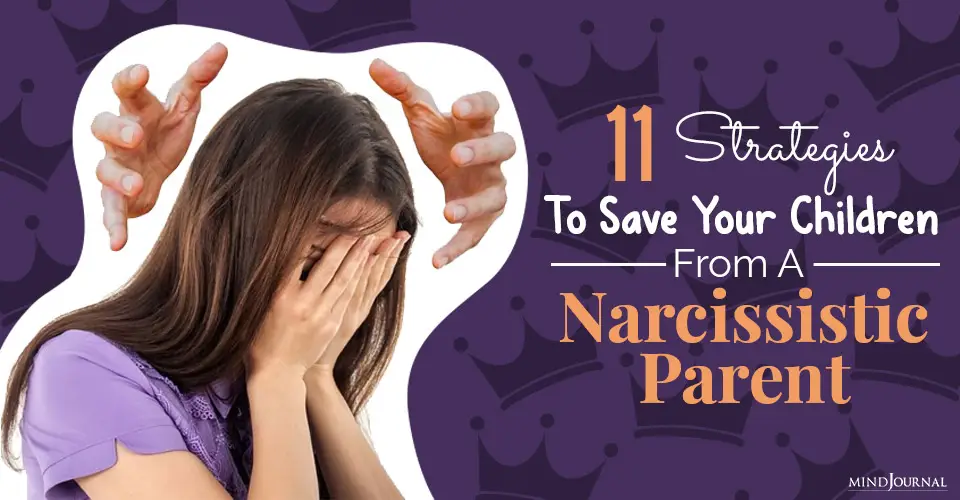




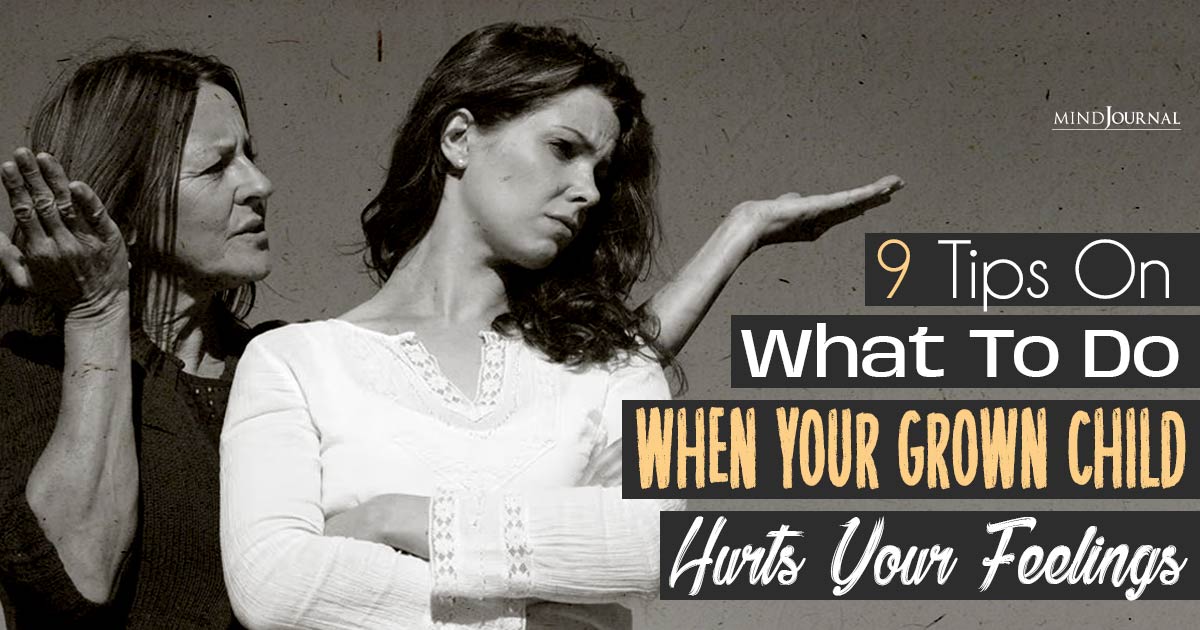
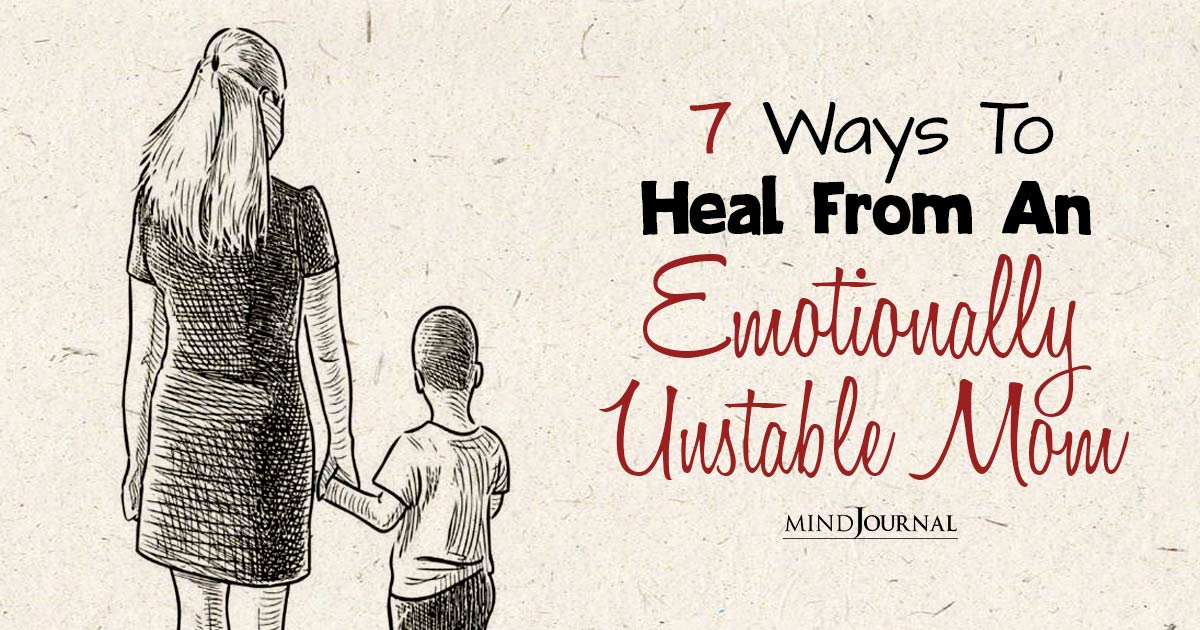

Leave a Reply
You must be logged in to post a comment.